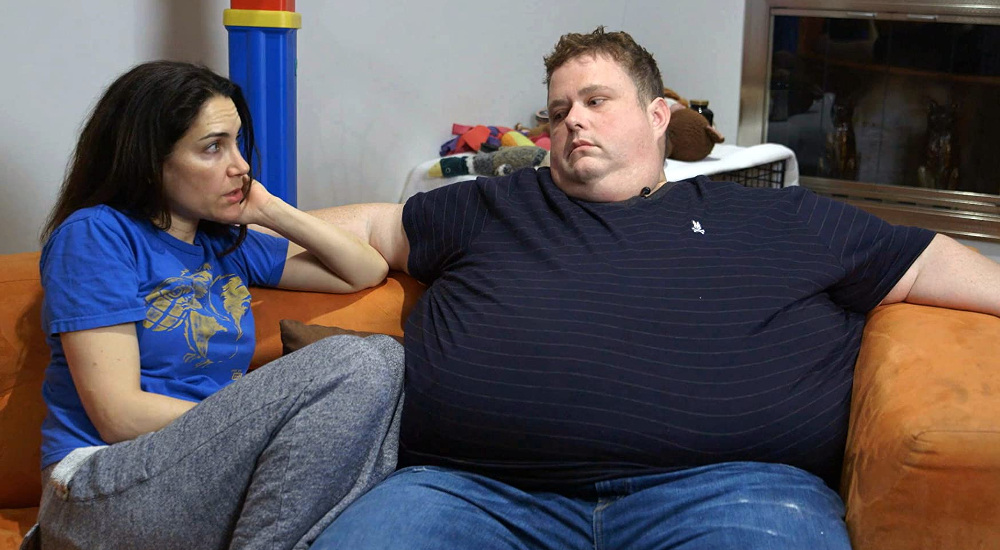Ralphie May was one of the most gifted comedians to emerge in the 2000s. A larger-than-life presence, he could easily navigate between relatable observations, self-deprecating anecdotes and absolutely filthy jokes. But the old adage turned out to be true: Some of the funniest people are crying on the inside. What's Eating Ralphie May? is an extremely intimate portrait of a tortured soul and the hell he put his family and himself through in the last years of his life. But while May was a fascinating figure, there's not enough material here to justify a feature-length documentary.
The major focus of the documentary is May's relationship with his wife Lahna Turner, a fellow comedian. Their love story is endearing, and even with some of the horrible things we see and hear them say to each other, their love for one another and their two kids runs deep. In the years before his death, May had lost almost half his size thanks to weight loss surgery. But he was still more than 300 pounds, and his size was taking a toll on his body. While his vitals showed a healthy man, externally he was breaking down, constantly exhausted and nursing an infected foot. He self-medicated with food, pot and opioids.
A lot of the movie is repetitive. May understandably complains about missing his wife and kids when he's out touring (which is much of the year). But when May is at home or the family joins him on the road, he's almost always sleeping, barely coherent when he's awake. Turner is understandably upset that he's wasting their valuable family time. Unfortunately, it doesn't make for compelling viewing. A trial separation isn't surprising in the least.
Still, there are moments that are undeniably heartbreaking. In one long interview with May, interspersed throughout the doc, he threatens to commit suicide by negligence: "I'll stop taking my Xarelto and let my blood thicken up and I'll get a clot." And hearing May's daughter sing "The Rainbow Connection" after his death caused me to tear up. It's tragic that someone who brought so many people so much joy was so self-destructive. He was a big presence, but his story would have been much more effective if it were a short.

